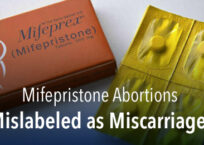
The pro-life movement is solidly consolidated in its stance on abortion. And this is for good reason, given how heinous and grievous of a crime abortion is.

However, abortion is not the only contemporary issue fundamentally affecting nascent life. One issue on which pro-lifers arguably have less of a consensus involves the medical practices for various forms of artificial reproductive technology.
In vitro fertilization (artificial conception), genetic editing, and other similar attempts to interfere with or enhance the natural reproductive process have been quietly gaining their own corner of scientific and cultural clout, and while some voices are indeed raising the alarm, I think we should be talking about it a little more than we are currently. Some people just fall back on the hyper-generalized critique that “man should not play God.”
That’s true, for sure, but can our response be a bit more intentional than that?
In this spirit, then, here are several broad-brush thoughts I have on this alarmingly-advancing sector of science.
1) Innocent life is always destroyed in in vitro fertilization (IVF) as it is commonly practiced.
As regularly practiced, an IVF artificial conception procedure creates more embryos than will be brought to fullness of life. This means that couples who create “extra” embryos have to choose either to “save them for later” in storage freezers, or “dispose of them” (I’m putting these phrases in quotes because they just sound so wrong when you realize we’re talking about human beings).
It’s not easy to find reliable stats on just how many embryos are destroyed through IVF procedures, but a couple articles from a decade ago—remember, this procedure has been around quite a while—give us a stark picture.
In 2013, one U.S. estimate calculated that 75% of embryos were not brought to birth. And a British estimate from 2012 posited that 1.7 million embryos had been thrown away in that nation, with 93% of them never being brought to fullness of life.
Accordingly, in a recent video about IVF, Dr. Joseph Meany (president of the National Catholic Bioethics Center) asked a poignant question: if a medical procedure had a 90% fatality rate, should it still be allowed? I’ll wager that every one of us would have the same answer to that question. So why is IVF allowed to continue in this way? It’s because the ones who die have no voices.
2) With procedures such as these, the child is not considered a patient.
Back in 2003, the President’s Council on Bioethics published a book, Beyond Therapy: Biotechnology and the Pursuit of Happiness. The book’s section dedicated to embryonic issues (such as IVF, embryo selection, and embryonic genetic enhancement) registered several insightful—and alarming—concerns about such practices.
For example, the authors point out that the very way these procedures are handled implies that the mother is the only patient involved.
While the procedures might contain all the necessary safeguards to ensure the mother is able to safely ovulate, carry the baby to term, and complete any other necessary steps along the way, we tend to overlook the fact that the embryo—or rather (lest we forget), the baby—is also a patient of this procedure!
The baby himself is so dramatically and intimately affected by this procedure used to bring him to life that the mother’s risks pale in comparison. To make matters worse, the baby is not only a patient, but (for obvious reasons) an unconsenting patient that cannot give an iota of approval to the procedures being done to him that will affect him for the rest of his life.
3) Genetic editing does not always easily distinguish between health and enhancement.
Some of the motivations for interfering with an embryo’s genetics might seem noble on the surface, like removing the anomaly that produces Down syndrome. (See part 3 for a perspective on why this might not even be noble in reality.)
But others seem obviously misguided, like editing the embryo’s genes to make sure he has perfect pitch. So where do we draw the line between the ones that seem noble and the ones that obviously aren’t?
We could say that genetic editing for health purposes is acceptable, while enhancement purposes are unacceptable, but the line is difficult to draw even there. Is editing your embryo’s genes to make him a faster runner a health concern or an enhancement concern?
A particularly athletic family might view “slow running” as a health defect that is necessary to remove if their child is going to live a happy life with them. And so ultimately, even this standard doesn’t protect unborn children against genetic manipulation prompted by the desires of their parents for an “ideal” child. (I am indebted to the authors of Beyond Therapy for this insight as well.)
By this point already, we have uncovered several reasons why it is dangerous for man to “play God” in as fundamental an arena as the creation of human life.
Stay tuned for a few more thoughts on artificial reproduction technologies in part 2.
*Note: As originally published, this article made a general claim about all IVF procedures. It has since been edited to specifically critique those that create more embryos than will be brought to the fullness of life.



























